Divorce is an emotionally challenging process that often involves complex negotiations and decisions. As experienced family lawyers, we understand that traditional litigation can be adversarial, lengthy, and costly, potentially intensifying tensions and contributing to ongoing conflict. This is why we advocate for a more collaborative and resolution-focused approach to divorce: mediation.
Mediation is a voluntary, confidential process where a neutral third party, known as a mediator, helps the divorcing spouses communicate and negotiate their issues in a supportive and non-confrontational environment. Divorce mediation is particularly well-suited to couples who are still able to work together amicably and prioritize their children’s best interests. It can be a beneficial dispute resolution method for addressing various aspects of divorce, such as property division, child custody, spousal support, and parenting plans.
In this article, we will outline the benefits of using mediation as an alternative to traditional litigation in British Columbia’s family law context and guide you through the mediation process. We will also offer insights on how our expert family law team can support you during this journey, ensuring that your rights and interests are protected, and helping you achieve a fair and mutually satisfactory outcome.
1. Key Benefits of Divorce Mediation
Divorce mediation offers several advantages over traditional litigation, both in terms of the emotional and financial impact on the parties involved. Here are the key benefits to consider:
– Reduced cost: Mediation can be significantly less expensive than going to court, as it often takes less time and eliminates the need for extended legal representation.
– Faster resolution: Mediation tends to be a more efficient method, with reduced wait times for court appearances and a higher likelihood of reaching a settlement more quickly.
– Greater control: In mediation, the parties have more say in the proceedings, which allows for increased flexibility in tailoring agreements to their specific needs.
– Enhanced communication: Mediation encourages open dialogue and improved communication between the parties, paving the way for a healthier post-divorce relationship.
– Confidentiality: Mediation is a private process, with discussions and negotiations remaining confidential and not part of the public record.
– Focused on the children’s best interests: Mediation prioritizes a cooperative approach to resolving custody and parenting plan disputes, helping to minimize the potential emotional impact on the children involved.
2. The Divorce Mediation Process Explained
Though each mediation process may differ depending on the unique circumstances of the divorcing couple, there is generally a standard structure to follow. Here’s an overview of the divorce mediation process in British Columbia:
– Preparing for mediation: Both parties should gather relevant financial and legal documents, as well as outline their priorities and interests. It is helpful to consult with a family lawyer to obtain legal advice and guidance throughout the process.
– Selecting a mediator: Spouses should jointly choose a qualified mediator experienced in family law matters.
– Mediation sessions: During mediator-facilitated sessions, the parties will discuss various divorce-related issues, such as property division, spousal support, child custody, and parenting plans. Each party may also consult with their family lawyer between sessions or have them present during discussions.
– Drafting an agreement: Once an agreement is reached, the mediator will draft a document outlining the terms. It is essential for both parties to have their family lawyer review the agreement before signing to ensure their rights and interests are protected.
– Finalizing the divorce: Upon signing the mediation agreement, the parties will submit it to the court for approval. Once a judge grants the divorce order, the settlement becomes legally binding.
3. How Our Expert Family Law Team Can Help
Our experienced family lawyers are well-versed in both mediation and divorce-related legal matters, making us well-equipped to support you in navigating the mediation process. Here’s how we can be of assistance:
– Providing impartial legal advice: Our family law team will ensure you have a thorough understanding of your rights and obligations, as well as the possible consequences of any proposed agreement.
– Advising on the mediation process: We will guide you through the steps of mediation, including helping you prepare for and participate effectively in mediation sessions.
– Reviewing settlements: We will carefully review any proposed mediation agreement to ensure that it complies with relevant laws and protects your interests.
– Safeguarding your rights in the event of disputes: If mediation is not successful or there are unresolved issues, our family law team can provide representation and advocacy in court proceedings.
4. Knowing When Mediation May Not Be the Best Option
While mediation can be highly beneficial for many divorcing couples, it is essential to recognize that it may not be suitable for everyone. Here are some situations where mediation may not be the best option:
– High levels of conflict or animosity: If the parties cannot communicate effectively or are unwilling to cooperate, mediation may not be productive.
– History of abuse or power imbalance: In cases where one party is more dominant or abusive, the mediator may be unable to ensure a fair and balanced process.
– Legal complexities: If the divorce involves complex legal issues that require extensive court intervention, mediation may not be the most efficient resolution method.
– Lack of commitment to the process: The success of mediation hinges on both parties’ commitment to finding a resolution. If either party is not fully committed, mediation may not be effective.
Conclusion
Divorce mediation can be a transformative way to reach a fair and mutually satisfactory settlement that prioritizes the best interests of your children, without the need for protracted court battles. By engaging in open, honest communication and seeking the support of our experienced family law team, you can navigate this alternative dispute resolution process with confidence.
Choose to take control of your divorce and embrace a more collaborative, constructive approach. Reach out to our divorce lawyer in Abbotsford at Pathfinder Law to discover how our expertise in divorce mediation can help pave the way for a smoother, healthier resolution to your matrimonial journey.




